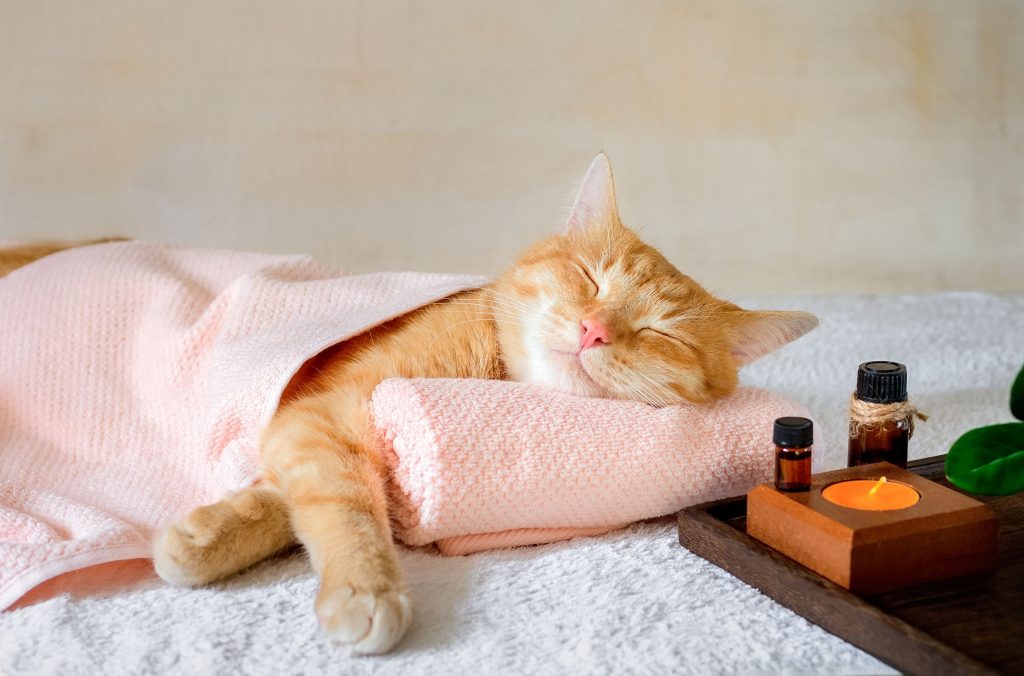Knoxville TN Animal Clinic, Knoxville Veterinarian
How Hot is Too Hot? How to Prevent Heat Stroke in Pets
Summer temperatures are here, and many of us are enjoying the great outdoors with our family and friends. Often these seasonal outings include our pets. The heat can be dangerous, though, especially for those wearing a fur coat. Volunteer Veterinary Hospital knows how important summer pet safety can be. Please have a great time outside, but take a few of our pointers along to prevent heat stroke in pets.
Continue…Preventing Flea and Tick Problems for Pet Health
No one likes an unwelcome house guest, and external parasites like fleas and ticks are no exception. Volunteer Veterinary Hospital has the information you need to kick flea and tick issues to the curb, and keep your pet health habits up to par.
Continue…It’s Always a Good Time to Adopt a Cat
June is National Adopt-A-Cat Month. With so many beautiful, sweet, playful felines available for adoption, there’s never been a better time to adopt a cat. If you’ve been wanting to find the best possible addition to your family, we are so happy to help you get started.
Continue…3 Reasons Pets Are Great for Your Health
There’s nothing better than coming home to our furry pets at the end of a long day at work. If you’re anything like us, all you want to do till bedtime is snuggle up with your kitty, take your dog for a walk, or play with your ferret. And you often feel better after spending time with your pet.
The physical and mental health benefits we get with our pets are significant. The team at Volunteer Veterinary Hospital would like to share the top three reasons why pets are good for your health.
Continue…Best Dog Parks in Knoxville TN
If you’re itching to get your dog outdoors, we highly recommend visiting one of Knoxville’s excellent dog parks. Knoxville is known for being one of the most dog-friendly cities in the United States—by design. Back in 2009, PetSafe partnered with the City of Knoxville to make the city the pet-friendliest in the nation. There are now 9 fabulous dog parks in the city. Most are equipped with doggie waste bags and water fountains. Which one will you visit first?
Continue…What to Worry About: Considering Spring Pet Safety
Spring is about embracing life-affirming positivity, joy, and abundance. The sun is shining, the flowers are blooming, and nothing can get us down. It’s the best time of the year to pivot towards health, vitality, and a happy, full future. Chances are, your pet has a keen sense for clocking the vibe shift between winter and spring. They can feel the potential, just like us. Unfortunately, that means they can come across less-than-ideal situations that threaten your approach to spring pet safety.
Continue…Where Can Dogs Find the Super Bowl in Pet-Friendly Knoxville?
Although Knoxville is very pet friendly, it can be hard to find a dog-friendly spot that also shows live broadcasted sports. Conversely, many traditional sport bars or pubs don’t have outdoor seating that can accommodate pets. Don’t worry, we’ve done the heavy lifting for your and your dog so you can find the perfect spot for you both to enjoy all the Superbowl has to offer.
Continue…Pet Wellness Tips for 2023
The new year is the time for new beginnings, and while you’re making a list of New Year’s resolutions, make sure you include ways to enrich the lives of your pets as well.
At Volunteer Veterinary Hospital, we want to help you make 2023 your pet’s healthiest and happiest year yet. Here are our team’s top wellness tips for the new year.
Continue…Our Winter Pet Safety Tactics Keep Paws Warm
It’s that time of the year again: sweater weather! There is so much to enjoy about winter in Knoxville, but not everyone loves the shorter days or chilly mornings. Pets might not necessarily know what’s going on with the weather, but they are certainly affected by it. The good news is that there aren’t too many extremes to worry about. However, winter pet safety is a concern that benefits from a proactive approach.
Continue…Supporting the Needs of an Overweight Pet
Just as it is with our ever-expanding waistlines, extra pounds on a pet don’t appear overnight. Successive weeks or months of a few extra treats a day, or a little less exercise, create the perfect storm for weight gain. The fact is, pet obesity is on the rise. Knowing what’s at stake for an overweight pet can help turn the tide and with a proactive, consistent approach, pet owners can have a direct impact on a pet’s overall health and longevity.
Continue…










